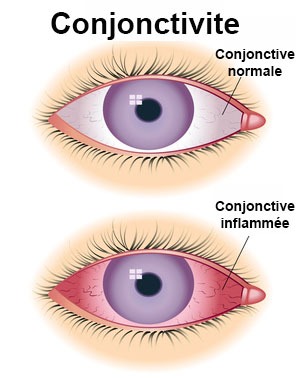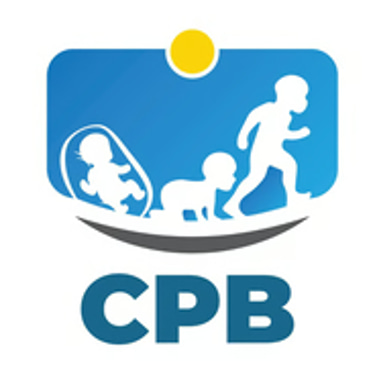Because every child deserves the best care
Conjunctivitis in children: symptoms, causes, and treatments
Conjunctivitis is a common condition in children, causing red, irritated, and sometimes swollen eyes. While usually mild, it can be uncomfortable for the child and may require prompt treatment to prevent spreading. As parents, recognizing the signs of conjunctivitis and knowing how to manage it can greatly help in relieving your child. In this article, the Centre Pédiatrique de Bonapriso provides information about the different types of conjunctivitis, their causes, and effective treatments.
Dr Ngo Bassoglog Jeanne
10/10/2024


1- What is conjunctivitis?
Conjunctivitis, also known as pink eye, is an inflammation of the conjunctiva—the thin, transparent membrane covering the white part of the eye and the inner eyelids. It can affect one or both eyes and often causes redness, discomfort, and discharge. It spreads easily, especially in environments like schools or daycare centers, so early identification and action are crucial for managing symptoms and preventing transmission.
2- Types and causes of conjunctivitis
Conjunctivitis can be classified into three main types based on its cause:
a. Viral conjunctivitis
Cause: Often linked to viruses like adenovirus, which can also cause respiratory infections.
Symptoms: Red eyes, watery discharge, and itching, sometimes accompanied by a cold or sore throat.
Contagiousness: Highly contagious and spreads quickly among children.
b. Bacterial conjunctivitis
Cause: Caused by bacteria such as Staphylococcus or Streptococcus.
Symptoms: Redness, swelling, and yellow or green discharge that may stick the eyelids together.
Contagiousness: Very contagious and requires prompt treatment to prevent further spreading.
c. Allergic conjunctivitis
Cause: Triggered by allergens such as pollen, dust, or pet dander.
Symptoms: Red, itchy eyes with clear discharge, often accompanied by sneezing and nasal congestion.
Contagiousness: Not contagious but may persist as long as the allergen is present.
3- Symptoms of conjunctivitis
The most common symptoms of conjunctivitis in children include red eyes, itching or irritation, watery or thick discharge, swollen eyelids, sensitivity to light, and crusty eyelids, especially after sleep. Recognizing these symptoms early helps determine the type of conjunctivitis and the appropriate care.
4- How to treat conjunctivitis in children
Treatment depends on the type of conjunctivitis.
a. Viral conjunctivitis
Management: Usually resolves within 7 to 10 days without specific treatment.
Care tips: Clean the eyes with a warm, damp cloth, encourage rest, and use artificial tears to relieve discomfort.
b. Bacterial conjunctivitis
Treatment: Requires antibiotic eye drops or ointments prescribed by a doctor.
Care tips: Clean the eyes regularly and avoid sharing personal items like towels or pillows to prevent spreading.
c. Allergic conjunctivitis
Management: Use antihistamine eye drops or oral antihistamines to relieve symptoms.
Care tips: Minimize exposure to allergens and maintain a clean environment.
5- Preventing conjunctivitis
Prevention strategies include regular handwashing with soap and water, avoiding touching or rubbing the eyes, using individual towels and personal items, disinfecting frequently touched surfaces, and keeping children with contagious conjunctivitis at home until symptoms improve.
6- When to see a doctor?
Consult a pediatrician if symptoms do not improve within a few days of treatment, if your child experiences severe pain, light sensitivity, or vision changes, if there is thick yellow discharge, or if symptoms worsen rapidly or affect both eyes. The Centre Pédiatrique de Bonapriso is available to provide expert care for your child’s eye health.
Conclusion
Conjunctivitis is a common but manageable condition in children. Recognizing symptoms, identifying the type, and applying the right care can make a significant difference in recovery. If symptoms persist or worsen, consulting a pediatrician ensures your child receives the appropriate treatment. The experts at the Centre Pédiatrique de Bonapriso are here to support you in caring for your child.

